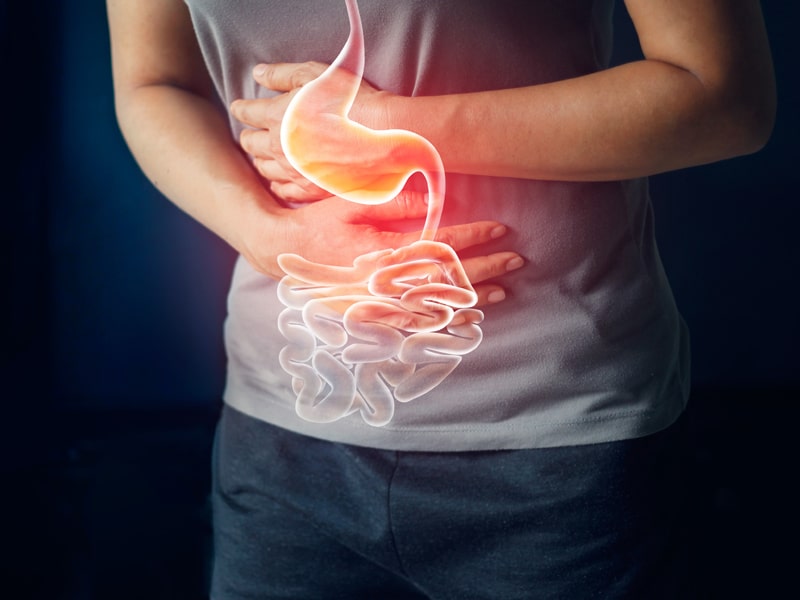When you feel an achy pain in your stomach or can’t seem hold food down, you’ll likely grab an over-the-counter bottle of pink gooey medicine and call it a day. But in some cases, those symptoms could be the first sign of something far more dangerous.
Stomach cancer isn’t as common as many other cancers, but what makes it so scary is how tough it is to spot. It often doesn’t show symptoms, or by the time there are any, the cancer may have already grown or spread. That’s why it’s crucial to pay attention to changes in your body and not ignore what seem like run-of-the-mill issues.
The majority of stomach cancers are caused by the cells that make up the inner lining of the stomach, says Vasu Moparty, MD, hematologist and oncologist on the medical staff at Methodist Dallas Medical Center. “Some of the symptoms mimic common ailments, such as food poisoning or stomach flu,” he says. “The difference is that these symptoms usually go away with time, whereas symptoms from stomach cancer will worsen.”
Some signs may include:
- Abdominal pain, such as a dull or cramplike ache
- Nausea with or without vomiting
- Loss of appetite or feeling full easily
- A drastic, unintentional drop in weight in short amount of time
- Anemia, feeling weak, or requiring blood transfusions
- Blood in the stool, dark stool, or blood on the toilet tissue.
Further testing may be needed to determine if cancer has developed. Your doctor may order a computerized tomography (CT) scan or endoscopy.
Advanced treatments at Methodist Dallas
“If the cancer is spotted in its earliest stages, it can be removed endoscopically with an outpatient procedure,” says Prashant Kedia, MD, FASGE, director of interventional endoscopy at Methodist Digestive Institute (MDI) and gastroenterologist on the Methodist Dallas medical staff.
MDI offers an advanced endoscopic technique known as endoscopic submucosal dissection (ESD). ESD is only available at select centers in the United States. It allows the physician to dissect large portions of the stomach lining in a single segment to remove cancers.
“When it comes to treating this cancer, it’s necessary to take a team approach and look at it from several angles,” Dr. Kedia says. “MDI has specialists in gastroenterology, surgery, medical oncology, radiation oncology, nutrition, and psychosocial services to provide a thorough, patient-centric treatment plan.”
Can you prevent stomach cancer?
There is no real way to prevent stomach cancer, but Dr. Kedia says there are ways to reduce your risk to help protect your health:
- Avoid tobacco use and exposure.
- Reduce your salt intake.
- Incorporate a healthy amount of fruits and vegetables in your diet.
- Maintain a normal weight.
On top of that, let your primary care provider know if you have a family history of stomach cancer. Then if you have persistent symptoms like those mentioned above, your doctor has a better understanding of your health risk. When in doubt, trust your gut and bring your concerns to a doctor’s attention.
Find a primary care provider or gastroenterologist on the Methodist Health System medical staff.

